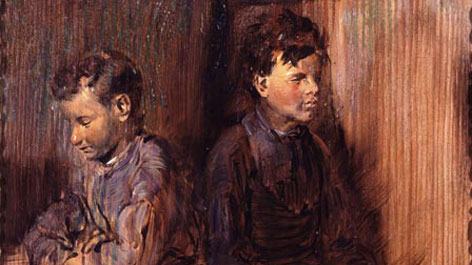Bereichsnavigation
Cultural Assets Illegally Removed in the German Democratic Republic (GDR)
Cultural assets were also seized illegally from their owners in the GDR. Such cases are handled by government agencies set up specifically for that purpose. The Foundation assists these agencies by request.
Both in the Soviet Occupied Zone and in the GDR, works of art, books, and other cultural assets were demonstrably seized from their owners without indemnification. This occurred, for example, in the context of land reform or in the course of political persecution. Some of the objects ended up in the collections of the Staatliche Museen zu Berlin (National Museums in Berlin) in the Eastern part of the city. In some cases, that happened as a result of direct transfer by government agencies of the GDR to the museums. In other cases, the museums themselves purchased such illegally seized objects on the art market without being aware of their origins.
The Gesetz zur Regelung offener Vermögensfragen (Law on the Settlement of Open Property Issues) and the Entschädigungs- und Ausgleichsleistungsgesetz (Indemnification and Compensation Act, EALG) established in the early 1990s the basis for dealing with expropriations in the GDR. The former owners of cultural assets seized without legal basis or indemnification could apply for return of the objects by 1993. The Ämter zur Regelung offener Vermögensfragen (Offices for the Settlement of Open Property Issues) are responsible for this process. The Stiftung Preussischer Kulturbesitz (Prussian Cultural Heritage Foundation) assists it in this process. By request, it searches in its holdings for objects of such provenance. Decisions on whether such items are to be returned are made exclusively by the responsible offices.


